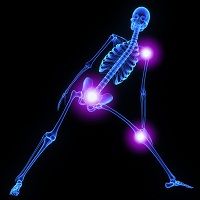Publication
Article
Internal Medicine World Report
What Treatments Relieve Lupus-Associated Arthritis & Fatigue?
Author(s):
For patients diagnosed with systemic lupus erythematosus (SLE) finding relief for their symptoms can make a large difference in their quality of life.

For patients diagnosed with systemic lupus erythematosus (SLE) finding relief for their symptoms can make a large difference in their quality of life.
A recent study, published in The Journal of Family Practice looked at ways doctors can help their patients particularly regarding arthritis and fatigue. The authors noted that for arthritis, hydroxychloroquine and chloroquine can provide a significant amount of relief.
The authors reported that the 2 have shown to be capable of “producing a 50% reduction in arthritis flares and articular involvement.” Another advantage of that option is the minimum number of associated adverse events. While methotrexate can reduce symptoms by nearly 80%, it’s reported to come with a greater risk of adverse events. Among the events reported were infections, gastrointestinal issues and elevated transaminases.
Other potential options cited in the study included nonsteroidal anti-inflammatory drugs, corticosteroids and omega-3 fatty acids, but their results were not shown to be as effective in helping the patients.
While the results for relieving arthritis related symptoms produced favorable results for the patients, the authors noted there was a difference in the level of success with helping patients deal with fatigue. One study comparing abatacept with a placebo noted “improvements in fatigue that weren’t clinically meaningful in posthoc analysis (-9.45 points difference on a self-reported 0-to-100 visual analog scale; 95% confidence interval, -17.65 to -1.25 with a 10-point reduction considered clinically meaningful.”
As with methotrexate, abatacept also had concerns about associated adverse events like facial edema, polyneuropathy, and infections.
Another study the authors looked at showed “no effect,” for dehydroepiandosterone on fatigue for women whose SLE was inactive. The authors noted there were also no real viable nondrug options for a patient’s fatigue. “Of 4 studies that evaluated the effect of exercise, 2 showed improvement and 2 didn’t,” they said. “Neither group self-management nor relaxation therapy and telephone counseling significantly relieved fatigue.”
As a result of this data the American College of Rheumatology recommends that “NSAIDs are sometimes helpful for control of fever, arthritis, and mild serositis.” They add that antimalarial agents like hydroxychloroquine can be helpful for skin and joint manifestations of SLE for preventing flares, and for other constitutional symptoms of the disease.” The authors added that they can also help with fatigue.
The authors also expressed that in Europe, the recommendation from the European league Against Rheumatism were antimalarials or glucorticoids and also have suggested NSAIDs for “limited periods of time in patients at low risk for the drugs’ complications.”






